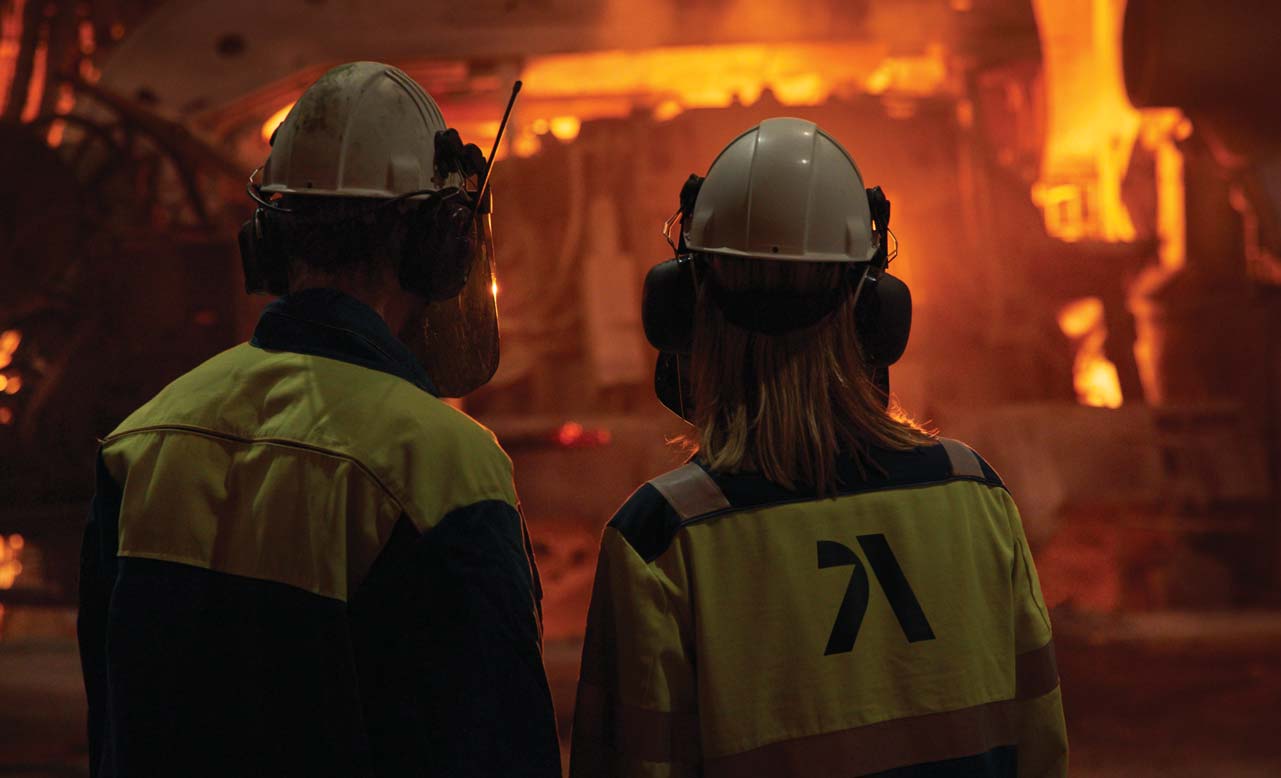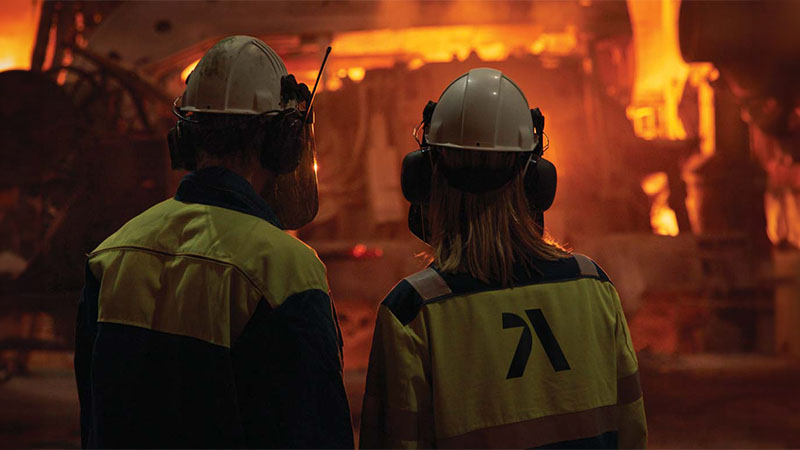Climate change is an existential threat to the world, causing environmental degradation. Rising carbon dioxide (CO2) emissions are recognised as being at the heart of this threat.
By Marcus Hillbom, Business Development Manager, Alleima

The European Union (EU) acknowledges that the world is currently on a path toward reaching several environmental tipping points, and the current level of action is not enough to avert global warming. In 2015, the United Nations established a legally binding climate change agreement – The Paris Agreement. It sets a framework to avert climate change by limiting global warming to 1.5°C above pre-industrial levels.
The EU has committed to transitioning to a climate-neutral society by 2050, and to reduce greenhouse gas emissions by 55% by 2030, compared to 1990 carbon levels. The climate goals were written into law in 2021. The EU says the steel industry is responsible for about 5% of CO2 emissions in the region and 7% globally(¹).
One of the key ways in which industries and individual businesses can support these climate goals is to reduce the levels of carbon they emit. Across the board, manufacturers need to review their emissions as a matter of urgency.
Life Cycle Assessment (LCA) has become an increasingly important methodology in modern industry to quantify environmental impact and identify hotspots in a product’s life cycle. LCA studies can be used to cover all stages, from raw material extraction to when the product reaches the market. They can provide calculations of the many different types of environmental impacts in product manufacture, including carbon footprint.
Alleima, a leading manufacturer of high value-added products in advanced stainless steels and special alloys as well as products for industrial heating, is currently implementing LCA methodology as a tool to measure and calculate the carbon footprint of its advanced materials and products. With third-party verified LCA data, Alleima will also support customers in reducing their environmental footprint. Verified LCAs will be a crucial factor for businesses in the future.
The story behind LCA
LCA methodology is rooted in the global commitment to reduce carbon emissions and combat climate change. The Paris Agreement, signed in 2015 by countries worldwide, sets targets for reducing carbon emissions and drives society to act in line with these goals. Companies play a crucial role in reducing carbon emissions, and Alleima is one of the leading companies in Sweden and has a focus on reducing its carbon footprint. However, implementing LCA methodology is not just about meeting the requirements of global initiatives and regulations. It is also about ensuring that a company can remain competitive and meet customer demands.
Strong interest from customers
Customer interest in LCA data is significant and increasing. More and more companies need to report their upstream carbon footprints due to sustainability reporting directives from the EU and other organisations.
Many customers are aware of their own environmental footprint and demand information from their suppliers about the carbon footprint of products to compare offerings and make informed decisions. This can include information from manufacturers and suppliers to support the customer’s scope 3 emissions goals (emissions not produced directly by the customer but by their upstream supply chain) so they can calculate their overall environmental impact. For today’s manufacturers, being able to supply this information to customers is critical.
Accelerating greener choices
One of the advantages of an LCA study is that it can pinpoint the areas that have the most significant environmental impact in a product’s life cycle.
This information can be used by steel manufacturers to target improvements and to reduce the carbon footprint of their products. By analysing usage, it is also possible to optimise the preservation and utilisation of resources, such as switching to alternative materials with a lower carbon footprint. It can also generate cost savings for manufacturers by identifying more efficient processes for them to implement.
Providing third-party verified LCA results can help manufacturers strengthen the relationship, transparency, and trust with their customers and broader stakeholders. By collaborating with customers and implementing sustainable solutions, manufacturers can help their customers achieve their climate goals and contribute to greener choices for the industry.

What your LCA study should include
An LCA can include a variety of calculations and standards, depending on what is to be assessed, but factors that significantly contribute to carbon footprint should be incorporated. Verification of the LCA indicates that specific standards have been followed. However, there can be differences in analyses which can make them difficult to compare without the support of a detailed technical report.
Technical reports should always be reviewed to ensure the same system boundaries are being calculated. These can include confirmation of the same life cycle phases to be assessed, emission factors, use of data, and whether the assessment covers only CO2 or wider-ranging CO2 equivalents (CO2e) which include other greenhouse gases such as methane. To ensure transparency and uniformity it is important to include a description of each of the calculations and standards used in the LCA study. Remember that an LCA is only one method that can be used to assess and compare carbon footprints; other methods may provide different results.
Review your LCA
Due to the subjective nature of the method, it is considered best practice to review your LCA before communicating results to stakeholders. The review will provide credibility and transparency and ensures that the standards are being followed. The review should be carried out by a trustworthy external party; any results and conclusions described in a review report should be unbiased.
A progressive partner
Alleima has developed specialist competence to address the challenge of documenting its carbon footprint at every production step, by appointing Nicole Holmgren as LCA specialist. She is currently in the process of analysing its product range and verifying data with support from IVL – the Swedish Environmental Research Institute. Alleima has chosen IVL as its verifying company, due to their high level of competence in this field. By conducting LCAs and highlighting low emissions, Alleima aims not only to meet the increasing demands of customers but also to position itself as a pioneer in the industry.
Advancing a sustainable journey
Alleima will begin its LCA program by releasing LCA data for its rock drill steel products, supporting the sustainable shift in the mining industry. The next step will be to expand LCA studies to stainless steel bar. A third-party verified carbon footprint value will be added to the material certificate for each product – like the information the company already shares about recycled materials. Third-party verified carbon footprints and LCA results will provide measurable evidence of the company’s environmental performance and support transparency.
Engineering as a force for sustainable good
If global environmental goals are to be met, the steel manufacturing industry must step up and do more to reduce greenhouse gas emissions. The development of LCAs can play an important role in supporting greater sustainability and future green initiatives in the industry. However, this is just the beginning of the journey.
- Discuss LCA with Alleima on Stand C26 at the Stainless Steel World Conference & Expo in Maastricht from September 26-28.


